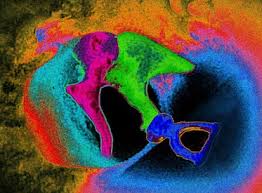Twentieth Sunday in Ordinary Time
“Whoever eats my flesh and drinks my blood remains in me and I in him.” Jn. 6: 54”
In a kind of half-joking manner, a certain biblical scholar has suggested that in the Gospels “Jesus always seems to be going to eat, eating, or coming from eating.”
Food, of course, was a primary concern for the half-starving people who listened to Jesus and followed him.
Food lovers might be interested in knowing that what people actually ate in those days, especially those on the edge of starvation, was bread, wine, and vegetables. And the bread they consumed, however, was not of the gourmet wheat variety, but rather it was made from barley. The wine they drank was watered down, bottom of the barrel dregs. Fish was not readily available, and meat was expensive.
Food, or the lack of it, is everywhere in the gospels.
For example, the gospel of John begins with a miracle at a wedding banquet. The feeding of the 5000 is the only miracle that is present in all four of the gospels. To demonstrate his intimate connection with God, Jesus uses a meal reference: “My food is to do the will of the Father.” Jesus’ farewell to his closest disciples takes place during the dinner we call the Last Supper. Jesus’ final advice to Peter is: “feed my sheep.”
Again, “Jesus always seems to be going to eat, eating, or coming from eating.”
Today’s gospel presents one exception to this pattern: here he is the food. “Whoever eats my flesh and drinks my blood remains in me and I in him.”
This graphic description that Jesus uses causes great alarm among certain of his original listeners. They even ask: “How can this man give us his flesh to eat?” Taken on a purely physical level, it sounds like cannibalism to them – and to us: the eating of flesh and the drinking of blood. Jesus even uses a verb that indicates the physical crunching with teeth.
What are we to make of this? How can we actually do the kind of eating and drinking that Jesus proposes in this gospel?
It’s important to note that Jesus is talking here on two levels:
First, he reminds his Jewish listeners that the word of God spoken to them in their Mosaic Law was often described as “food” to be eaten and consumed. Their relationship with God was to be that extraordinary.
Second, he insists that the Law – however important – is not enough. An enhanced revelation of who God is and how passionately he desires to be in union with us is now present in the person of Jesus himself.
In other words, the Law is now being taken to a new level. It is being superseded by the incarnation, death and resurrection of Jesus in which God has entered into a relationship with the world that is so personal and so intimate and so intense that the only way to describe it is through the act of eating and drinking.
As a consequence, sharing food together becomes the preeminent picture of a mutual love affair: one in which we live in Jesus and Jesus lives in us.
This is precisely what happens each time we as a community of believing people take the body and blood of Jesus into our own bodies. Our hope and intention is that through this most tactile and intimate way of approaching God we will allow him all the way down into the deepest, most intimate part of ourselves – even to the molecular dimension of our being – to that level where real change and radical transformation can take place.
Or, as St. Paul so powerfully puts it: to that place where “I live, no longer I, but Christ who lives in me.”
The goal of this Eucharist that we celebrate together is to do just that: nourish us; strengthen us; renew us; revitalize us; and fundamentally change us – in an even greater way than food and drink does.
“Whoever eats my flesh and drinks my blood remains in me and I in him.”
Ted Wolgamot, Psy.D.
11809194.1
8/12/15
NOTE: Some of you have asked what books I’m reading that might be of interest to them. Here are a few that I found spiritually instructive:
Jesus: A Pilgrimage, James Martin, SJ
The Jesuit Guide To (Almost) Everything, James Martin, SJ
Sacred Fire: A Vision For A Deeper Human and Christian Maturity, Ronald Rolheiser, O.M.I.
Things Hidden: Scripture as Spirituality, Richard Rohr, OFM (along with any number of his other books!)
The Heart of Christianity: Rediscovering a Life of Faith, Marcus Borg
Convictions: How I Learned What Matters Most, Marcus Borg





